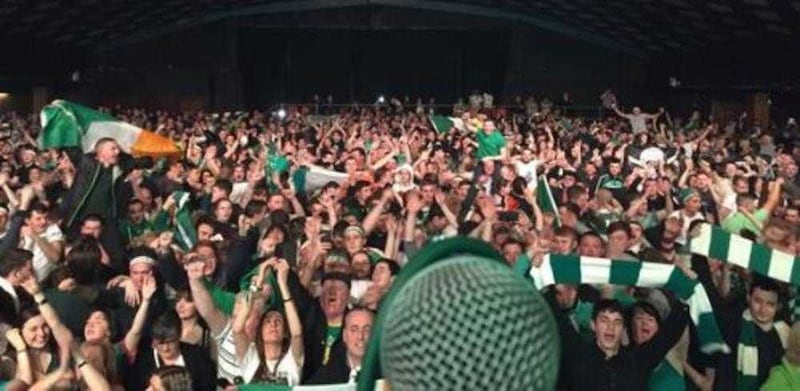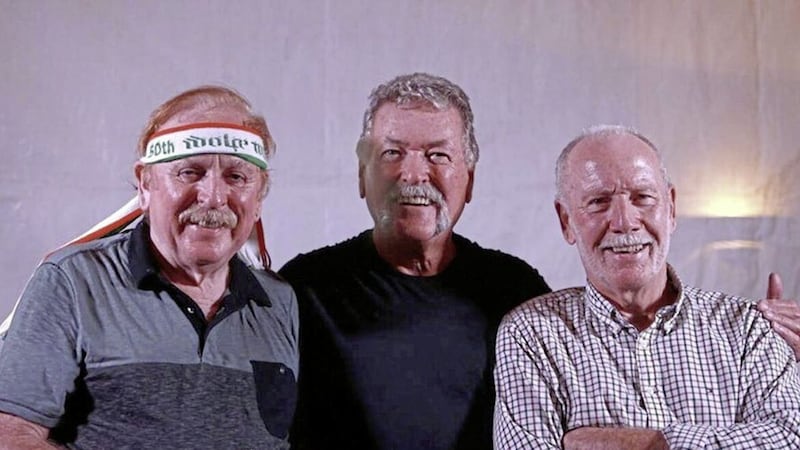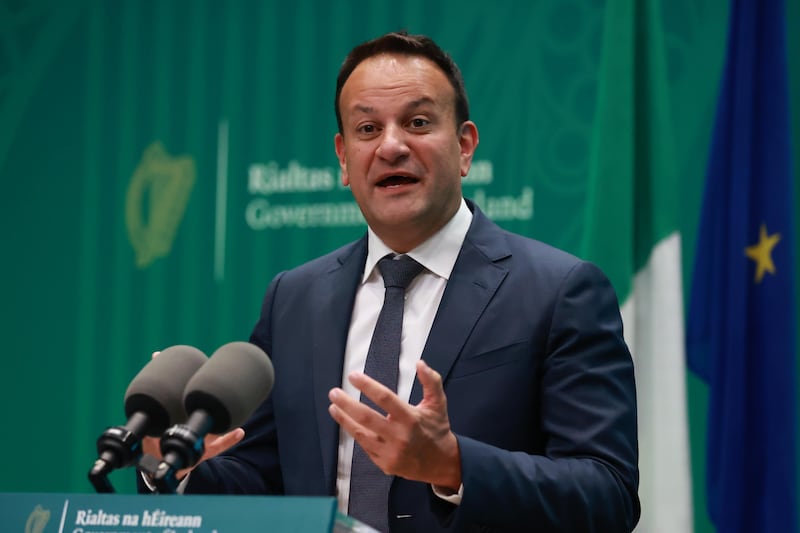Who are the Wolfe Tones?
The Wolfe Tones are an Irish rebel folk music band best known for singing songs which have been condemned as supporting the IRA.
The band was formed in 1963 in the Inchicore neighbourhood of Dublin by childhood friends Brian Warfield, Liam Courtney, and Noel Nagle. They were later joined by Tommy Byrne and Brian Warfield’s brother Derek. That line-up remained a constant on the Irish folk music scene until 2001 when Derek Warfield left the band.
The group took its name from Theobald Wolfe Tone, a prominent Irish revolutionary leader from the late 18th century.
Over the last 50 years the band has seen several changes in its line-up, with Brian Warfield the only original surviving member.
They have had several well-known hits in Ireland with songs such as On the One Road, My Heart is in Ireland, The Streets of New York, and Grace all becoming anthems for Irish communities around the world.
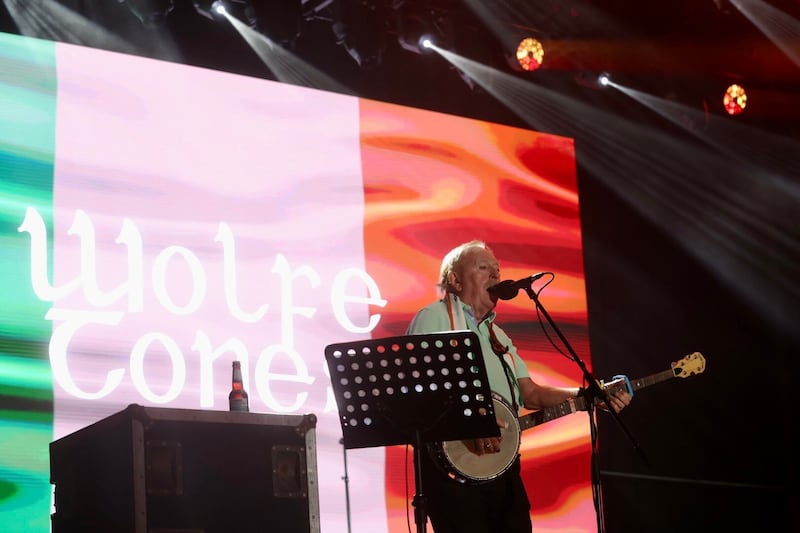
Criticism of songs 'glorifying the IRA'
The Wolfe Tones recorded their first album at Marble Arch studios in London in January 1965. Subsequent album titles included Up the Rebels, The Rifles of the IRA and Let the People Sing in 1971 which included photos of republican prisoners smuggled out of the Long Kesh internment camp.
Their first Irish No 1 hit The Helicopter Song celebrated the escape of IRA prisoners from Mountjoy prison in Dublin in October 1973.
Nearly 40 years later Brian Warfield claimed that the band had been the original target for loyalist paramilitaries who murdered three members of the Miami Showband in July 1975.
In 1981 the band scored their second Irish no 1 hit with the emigration song Streets of New York.
The band managed to reach the No 1 spot on the Irish Singles Chart again in 2004 with the song Padraic Pearse a tribute to one of the leaders of the 1916 Easter Rising.
In 2020 the band’s version of Come Out Ye Black and Tans also topped the Irish and UK iTunes charts.
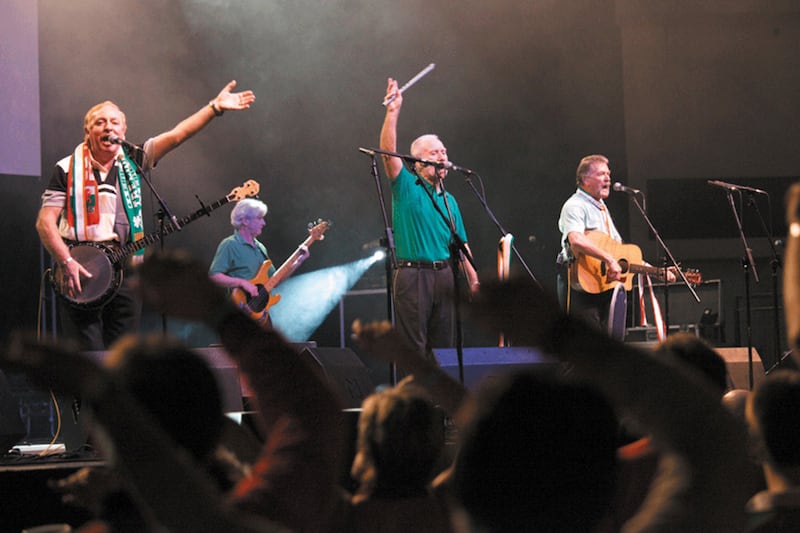
Celtic Symphony and football
The song was originally released in 1987 as part of the centenary anniversary for Celtic football club. Brian Warfield has defended the song and its lyrics, insisting that those who are offended by the song are misguided about its meaning, and that it is a direct quote from graffiti he had seen on a wall in Glasgow.
In 2014 then Football Association of Ireland chief John Delaney was criticised after he was filmed singing a Wolfe Tone’s song, The Ballad of Joe McDonnell, about the death of an IRA hunger striker in 1981.
The controversy again led to the Wolfe Tones’ song entering the top 10 of the download charts.
The Wolfe Tones’ version of A Nation Once Again was voted the BBC World Service listeners’ favourite song in 2002.
Brian Warfield's response to Derry judge
In 2010 Brian Warfield criticised Derry magistrate Barney McElholm after he fined a man for playing the band’s music on his car stereo as he drove close to an Orange Order parade in the city.
Imposing sentence, District Judge Barney McElholm said that if there was such a thing as a good time and place to play Wolfe Tones music, it was not on Spencer Road during a loyal parade. Mr McElholm added that it was very doubtful that anyone who goes around playing Wolfe Tones music all day could ever be reasoned with.
Brian Warfield said he was prepared to come to the city and speak on behalf of the defendant should he decide to appeal the conviction.
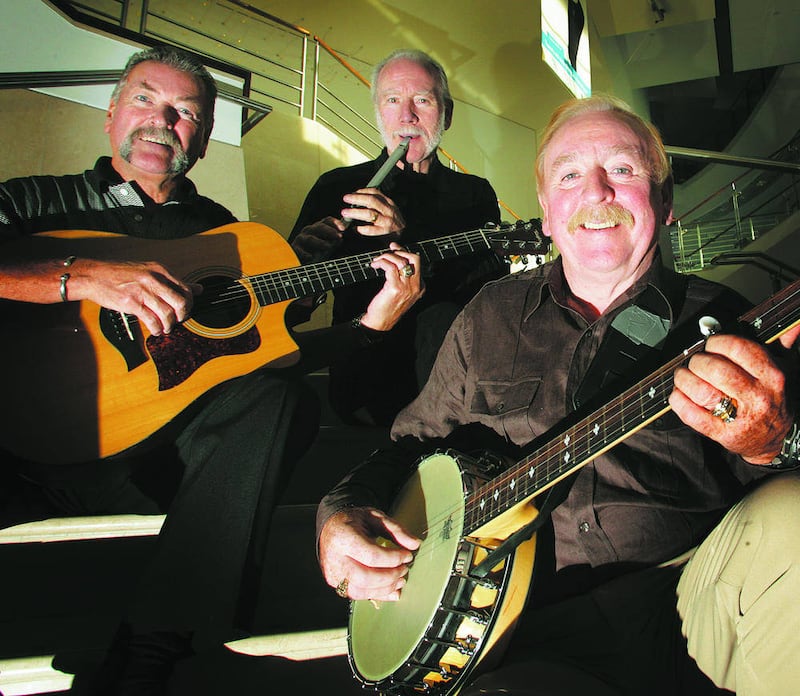
Irish women's team controversy
In October 2022 the Wolfe Tones scored another No 1 hit in Ireland when Celtic Symphony, which includes lyrics supporting the IRA, was embroiled in public controversy.
The 24-year-old song unexpectedly entered the British and Irish pop charts following footage of the Irish women’s soccer team singing its controversial chorus ‘Ooh ahh, up the Ra’ a reference to the IRA (Irish Republican Army).
The team later apologised for singing the song but despite the controversy the Celtic Symphony reached No 1 in Ireland and No 3 in the British pop charts.
Brian Warfield defended the team who he claimed were being “persecuted and bullied for a song they like”.
“What the hell is wrong with IRA? It is the Irish Republican Army. It is the people who put us here and gave us some hope when we had no hope,” he told the Irish Times.
The singer added: “Don’t tell that you can’t sing Celtic Symphony but you can sing God Save the King? Don’t give the argument that Land of Hope and Glory isn’t a rebel song. It is."
Celtic Symphony lyrics
The contentious lyrics are:
Graffiti on the walls, just as the sun was going down
I see graffiti on the walls - for the Celts! for the Celts!
Graffiti on the walls says we're magic, we're magic
Graffiti on the wall...
It says oh ah up the 'RA, say ooh ah up the 'RA
Did the Wolfe Tones write Grace?
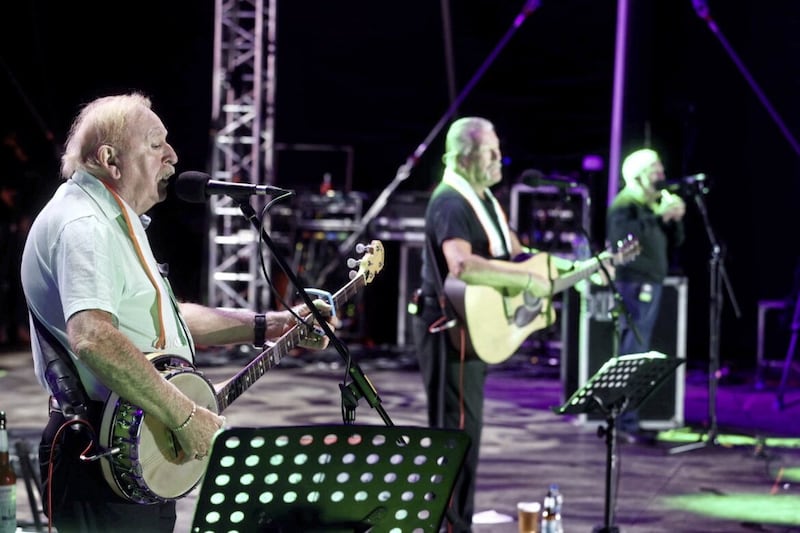
The Wolfe Tones did not write Grace, which tells the story of Grace Gifford’s marriage to Joseph Plunkett in the chapel of Kilmainham Gaol just hours before he was executed by a British army firing squad for his role in the 1916 Easter Rising.
Grace, which was written by brothers Frank and Sean O’Meara, has also been recorded by Rod Stewart but the Wolfe Tones version of the song remains the most popular.
The band continued to release music until 1989 when Derek Warfield signed right to an American distributor. It later emerged that the deal meant the Wolfe Tones could no longer record new music.
Derek Warfield later left the Wolfe Tones to set up his own band.
Appearances at Féile an Phobail
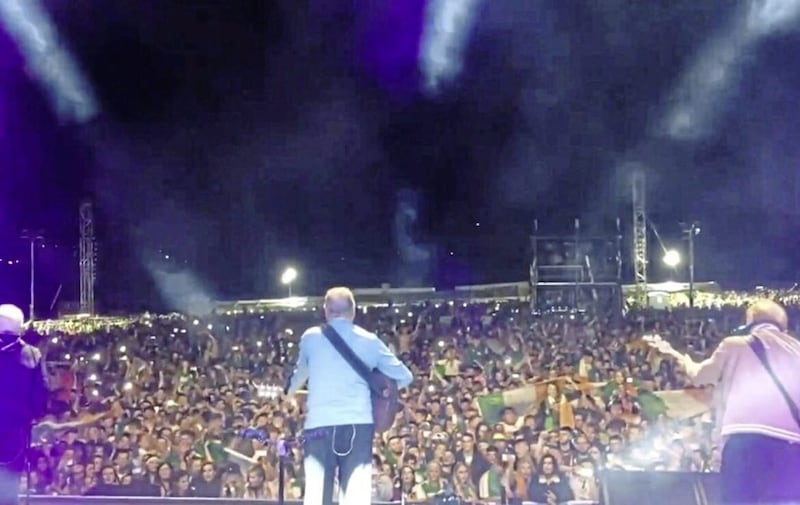
The Wolfe Tones annual appearances at the Féile an Phobail festival in west Belfast has been condemned in recent years because of pro-IRA chants from some members of the audience.
Unionist politicians have repeatedly called for the Wolfe Tones to be banned from the event and for public funding for Féile an Phobail to be withdrawn.
World tours
Despite controversy over the signing of songs which glorify the IRA the Wolfe Tones continue to have a massive popularity.
They have toured the world and have been awarded freedom of the cities of New York and Los Angeles and the prestigious Liberty Bell – Philadelphia’s highest honour.
Brian Warfield has publicly pointed to the fact that his band outsold U2 in record sale in 2001/02.
Despite the band announcing that it would retire in 2014 it continues to pack out venues.
Are there tickets left for the concerts in Belfast and Dublin?
In September 2023 the veteran band surprised many in the music industry when their appearance at the Electric Picnic festival in Co Laois drew an estimated 30,000 fans the largest audience of the event.
The band are due to play two sold-out gigs at Dublin’s 3Olypmia arena in October and November 2023 and will return to Belfast’s Waterfront Hall in January 2024 to mark 60 years in the music business.
